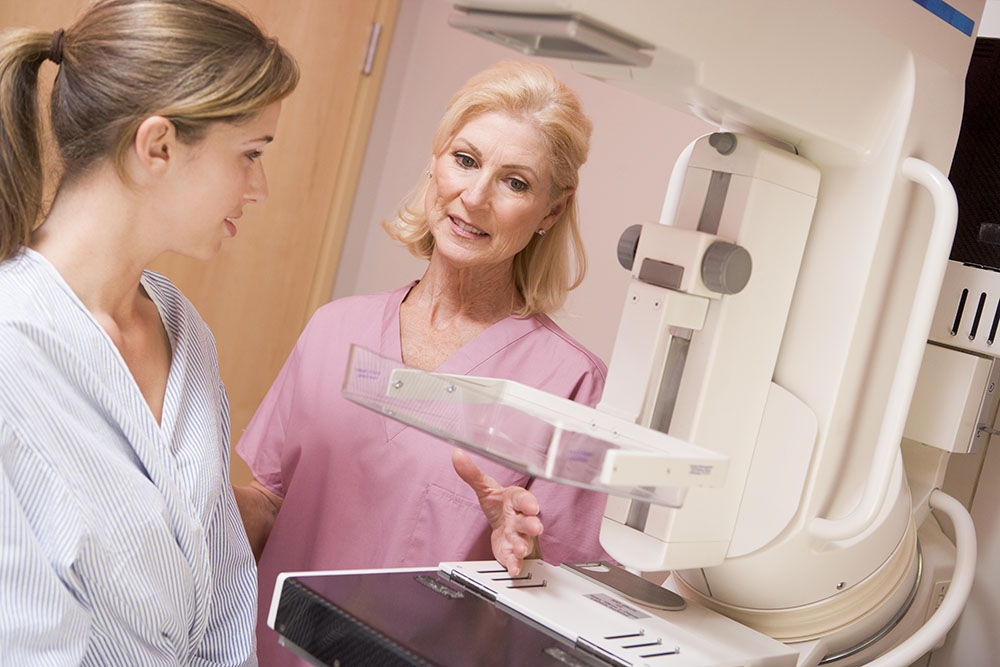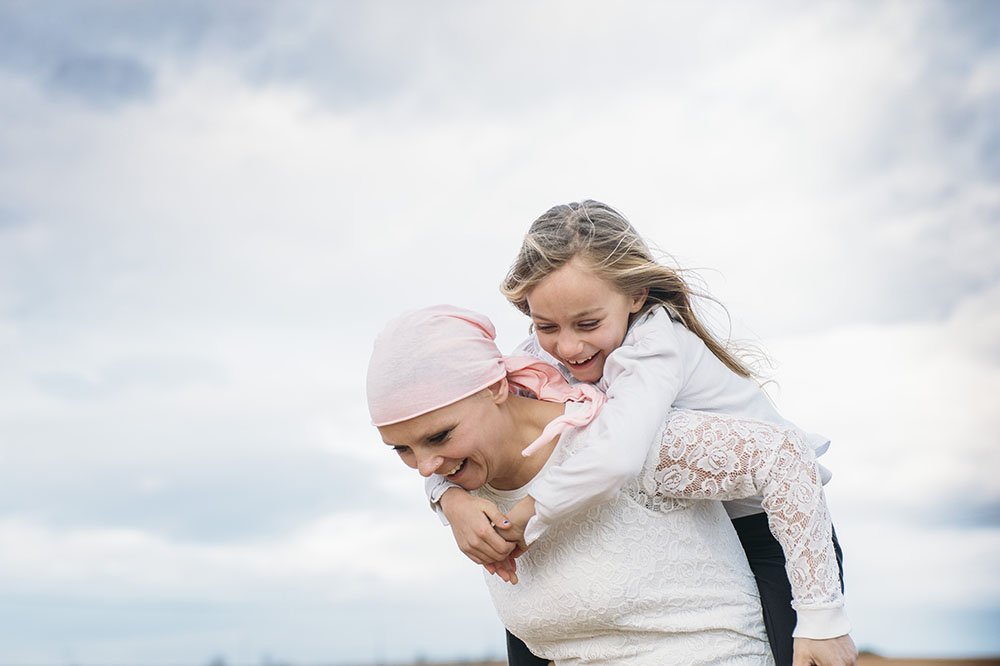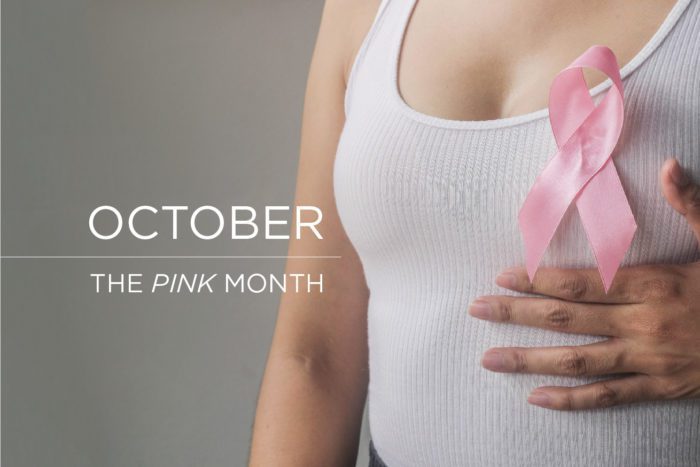Marked across the world as the Pink Month, or Breast Cancer Awareness Month, October is a time to help increase visibility and support for the early detection and treatment of this common illness. At Hairatin, we believe in the importance of staying informed about what each of us can do to help spread awareness. We’ve put together this small segment filled with valuable information about this disease and how to deal with hair loss –one of the harshest side effects that those who undergo treatment(s) tend to experience.
Most common cancer in women.
Each year, there are around 1.38 million new cases and 458,000 deaths from breast cancer. It is by far the most common cancer in women worldwide, in both developed and under-developed countries. However, most of the deaths occur in low and middle-income countries, where women are diagnosed in already very late stages of the illness. This is mainly due to a lack of awareness on early detection and/or struggles to receive proper healthcare services.

Early detection is key.
“According to the American Cancer Society, when breast cancer is detected early, and is in the localized stage, the 5-year relative survival rate is 99%. Early detection includes doing monthly breast self-exams, and scheduling regular clinical breast exams and mammograms.” – National Breast Cancer Foundation, INC.
As well as with hair loss– early detection and treatment is key. Unfortunately, this is not the case for a vast majority of women. Due to unfavourable socio-economic conditions, most of these women are not able to benefit from a proper health system. This is why donating is one of the best ways you can help women worldwide before, during and after breast cancer diagnosis. Why not start now, on Breast Cancer Awareness Month?
Stay away from parabens.
You’ve probably heard about them over the last years. Parabens are basically preservatives used in a variety of cosmetic products, from shampoos to skin cream to makeups, and more. They are essentially chemical compounds that help extend the shelf life of other compounds.
Studies have shown that parabens don’t just leave the body like other compounds; they store in cells, causing long-term damage long after exposure. Research continues to link parabens to cancer cells, making them a “no go” for many consumers. Parabens have been found in breast tumors and it’s believed that their estrogen-mimicking effects can also harm testosterone levels and sperm count in men.
Most manufacturers don’t put “parabens” on the ingredient list. That’s why you should know the names of paraben ingredients so you can decide if you’d like to continue using a product or not. Keep an eye out for: Ethyl-, butyl-, methyl- and propyl-, dibutylphthalate (DBP), dimethylphthalate (DMP) and diethylphthalate (DEP).

So, does cancer cause hair loss?
It might come as a surprise to some, but cancer does not cause hair loss. It’s the treatment itself, chemotherapy and/or radiation, what causes the hair to fall out. Chemotherapy is a treatment where powerful drugs are used to target rapidly dividing cells in the body. As it targets the “bad” cancer cells, other good cells are affected as well. Some of these good cells are located in your hair follicles. Like cancer cells, these cells divide rapidly during the natural hair growth cycle.
As a woman, losing hair with breast cancer represents much more than just a physical challenge. There is a greater emotional toll that comes along with it. Partially or fully “losing” your breasts and long hair –culturally-common features linked to being a woman– is not easy. It’s essential to stay informed and up to date with your physician by asking questions like: Will any medicines involved in my treatment lead to hair loss? If so, when will I experience it? Will it be gradual or all of a sudden?
And eyebrows or eyelashes?
Yes, it’s possible to lose hair all throughout your body during treatment. Including your eyebrows and your eyelashes. The good news is that nowadays there’s many options to make this process a little easier. Some of these include the use of eyelash extensions, false eyelashes, or 3D Fiber Lashes –a healthier alternative with no harsh chemicals or side effects.
Hair loss solutions.
Many cancer patients look forward to ways of preventing chemo hair loss, but there’s not enough studies to support it. Some people experience chemo without hair loss, but the majority do experience a significant loss. Noticing hair loss causes stress, and this stress causes even more hair to fall out. Fortunately, there are steps you can take to break this vicious cycle while your hair follicles recover to their normal growth.
While your hair follicles recover, you can opt for hair covers like wigs or scarves. Or, a hair enhancer like Hair Building Fibers. If you go for hair fibers, make sure you choose one that does not contain ammonia. Its use can be harmful if you are undergoing treatment. Ammonia dries up the scalp and may promote breakage. If your hair follicles have already become weaker with treatment, you should stay away from it to prevent even more hair loss.
Depending on the treatment, hair loss might be partial or total. Either way, in most cases there is still enough hair vellus left in your scalp where hair fibers can adhere to. The upside of this hair loss solution is that you work with your own hair follicles. Fibers make even the thinnest of strands appear fuller and thicker. Hence, reducing the visibility of bald spots –and added stress!
Check out our full blog on Losing hair with cancer for more advice on how to deal with hair loss before, during and after treatment.
It’s a process.
If you or someone you love has been diagnosed with breast cancer, know that it’s OK to feel worried about your hair growth after chemo. The side effects will eventually subside. Some people even get their whole head full of hair while still undergoing treatment. For others it might take a little longer. Whether you have a fast or a slow hair growth after chemo, remember that there will always be solutions to cope with hair thinning after chemo.
Your hair follicles are still alive, and will recover at their own pace. Most importantly, YOU are still alive! It’s Breast Cancer Awareness Month, so let’s celebrate that, and the more than 3.8 million breast cancer survivors in the United States alone today. You’ve been given the gift of life, and that’s much greater than the hair you might have lost along the way.
For more information on how to raise money for cancer research please visit the Breast Cancer Research Foundation.

